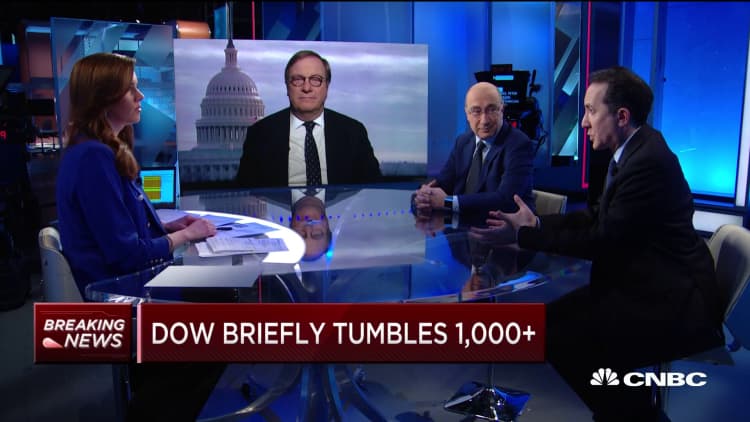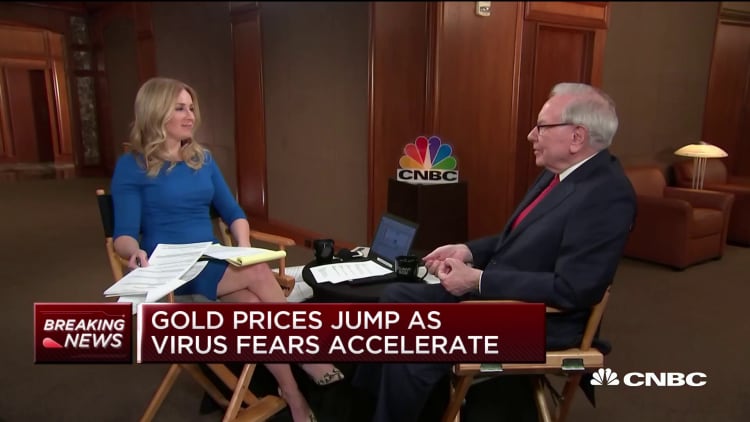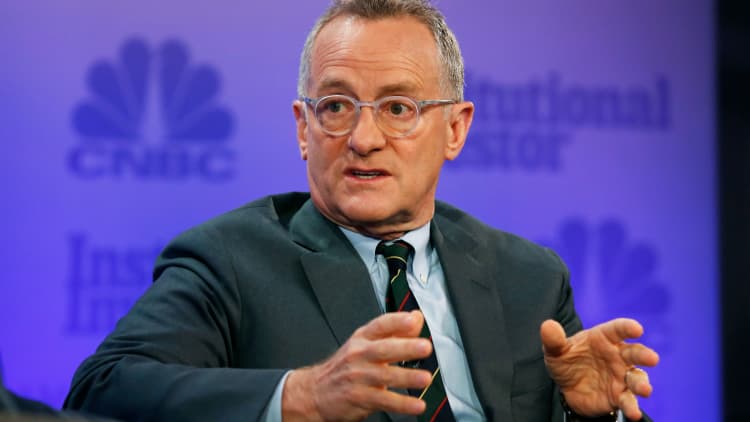The deadly coronavirus is just one of several "white swans" circling the global economy that could present the biggest challenge since the financial crisis, according to economist Nouriel Roubini.
The economist, who has been nicknamed "Dr. Doom," pointed to a number of other issues that could be just as destabilizing.
They include: geopolitical tumult across at least four fronts, a potentially chaotic presidential election, reignited trade tensions with China, potentially catastrophic damage from climate change and a growing potential of cyberwarfare.
"This list is hardly exhaustive, but it points to what one can reasonably expect for 2020," Roubini said in an essay for Project Syndicate. "Financial markets, meanwhile, remain blissfully in denial of the risks, convinced that a calm if not happy year awaits major economies and global markets."
Markets, though, were anything but calm Monday.
The Dow Jones Industrial Average tumbled more than 1,000 points at its trough as investors fretted over the spreading coronavirus, record-low bond yields and a political landscape that could see a major party nominate a self-proclaimed democratic socialist, Sen. Bernie Sanders, as its presidential candidate.

All of these market challenges, in Roubini's view, are within the market's line of sight and thus contrast to the "Black Swan" scenario described by investor Nassim Taleb in his bestselling 2007 book of the same name. Taleb referred to events that are highly unpredictable and thus cause more damage.
"Beyond the usual economic and policy risks that most financial analysts worry about, a number of potentially seismic white swans are visible on the horizon this year," Roubini wrote. "Any of them could trigger severe economic, financial, political, and geopolitical disturbances unlike anything since the 2008 crisis."
Roubini earned his nickname in the run-up to the crisis and afterward for his frequent pessimism on markets and the economy. He has been a bit more sanguine in recent years, though he has said he thinks a recession is likely in 2020.
In his post, published last week before news of the renewed cornavirus spread and Monday's market washout, Roubini said a U.S.-Iran war is "likely this year," and said within a year the cold trade war between the U.S. and China "could have escalated ... to a near-hot one." He also sees "costly environmental disasters" due to climate change and the potential that China could dump its U.S. Treasury holdings amid heightened trade tensions.
He also fears tensions between the U.S. and Russia and North Korea.
How investors feel
Roubini's fears represent a worst-case scenario of what could bring down the longest economic expansion and bull market in U.S. history.
The aggressive Monday sell-off aside, investors have not been as fearful.
Prior to the past few trading days, markets had been taking the worries over coronavirus well, with 2020 off to a solid start. Just several months removed from worrying about recession, most economists had turned to expectations of slowing but still steady growth.
A DataTrek Research survey of 294 mostly buy- and sell-side analysts reflects concern though not panic about the COVID-9 outbreak.

For instance, about only 1 in 4 expected a virus-induced recession. But about a third expressed concern for their personal safety.
"That's an important market observation, because investors concerned about their personal health are more likely to have bearish assessments of its macro effects," wrote DataTrek co-founder Nicholas Colas. "The combination of personal safety concerns about COVID-19 and uncertainty about potential near-term positive catalysts like Chinese containment likely means a continuation of Friday's volatility and further near-term declines for US/global equities."
Almost on cue, Monday saw a market sell-off that inspired fear over how deeply the coronavirus scare could spread in a market that had seen the S&P 500 reach its highest valuation level in almost 18 years just a week ago.
"There is room for further correction, there's no doubt about that," said Jim Paulsen, chief investment stratetgist at The Leuthold Group. "But I still think the fundamentals under this are pretty good. We're improving. My guess is that we will be higher before this year's out. I think this is a temporary connection."



